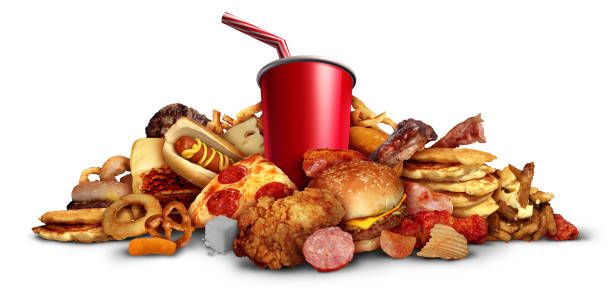Introduction
Throughout history, we’ve been processing our food to extend its shelf life and create more enjoyable, easily digestible products. Processes such as canning, fermenting, pasteurising, smoking, and others have been employed. Grains are processed for bread, milk for cheese, and fruits for preserves, allowing us to savour and creatively utilise the diverse produce nature has bestowed upon us. Food processing is not a recent phenomenon; it’s a practice spanning countless millennia.
Today, the global concern isn’t about traditional processed foods but the substantial increase in Ultra-Processed Foods (UPFs) since the mid-70s. Experts like Dr. Chris Van Tulleken define UPFs as items wrapped in plastic with at least one ingredient rarely found in a home kitchen (e.g., synthetic emulsifiers, stabilisers, sweeteners).
The Rise of UPFs
From the mid-1970s, a global weight gain trend coincided with a significant surge in ultra-processed food production, changes in farming, food production, marketing, and consumerism. This aligns with rapid technological changes, increased information exposure, and shifts in lifestyles. Presently, in the UK, UPFs constitute approximately 60% of our diet, posing serious health concerns for this generation and subsequent generations to come.
Corporations and Marketing in UPF Consumption
The narrative around food and its consumption is increasingly shaped by advertising, prioritising convenience over nutritional content. Questions arise about how often families and individuals make time for wholefood shopping, cooking from scratch, or engaging in social cooking. UPFs have become so embedded in societies that the essence of real food and its origin is often forgotten. Profit, rather than health and nutrition, drives their design, contributing to negative outcomes like environmental destruction and disease.
Profit vs. Nutrition
Many UPF producers are large corporations aiming to create profits for shareholders and satisfy their boards. Notably, the UK alone spends £143 million on advertising sweets, sugary drinks, and UPFs, compared to the government’s £5.2 million on healthy eating initiatives.
The Connection Between UPFs, Obesity, and Disease
Research establishes a direct link between excessive UPF consumption and various diseases, including dementia, strokes, heart attacks, cancers, mental health issues, obesity, inflammatory bowel disease, and anxiety. There’s also substantial evidence linking UPFs to early death. Often, UPFs contain addictive and toxic ingredients that disrupts our gut micro-biome and increases the likelihood of poor health and disease. Our bodies are not equipped and are often unable to process the ingredients that are contained in UPFs.
The Confusion of Food Labelling
While traffic light system on labels indicate carbohydrates, fats, proteins, and calories, they do not reflect a food’s overall healthiness. For instance, organic raw nuts, such as walnuts, might receive a red rating under fats despite being an excellent source of omega-3, while artificially sweetened yogurt might get a green rating under sugars despite lacking nutritional value and posing harmful effects. Many UPFs are cleverly marketed and branded as being healthy or make health claims, however, when you scratch the surface they are comprised of sugars, fats and additives that are highly addictive, driving consumption and disease.
Being Informed is Being Prepared
Arming oneself with knowledge about the UPF industry enables individuals to make positive changes in their eating patterns. Taking time to shop for ingredients and experimenting with new recipes can be a social event, involving family or friends, rather than opting for the ease and convenience of UPFs. Natural wholefoods and meals made from scratch using natural ingredients have nutritional content that your body needs to perform at it’s best.
Conclusion
Daily bombardment with UPF advertising, coupled with their ease and convenience, makes it challenging to resist their allure. However, contemplating food, enjoying its preparation, and making mindful buying choices can lead to small yet impactful changes in overall physical and mental well-being. It’s not just about managing weight; it’s about promoting general health and building resilience against disease.
Further Reading/Listening
Ultra-Processed People – Dr Chris Van Tulleken
Feel Better, Live More Podcast – Dr Chatterjee
